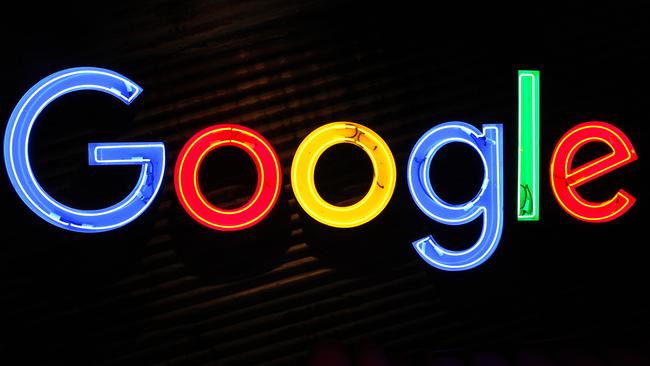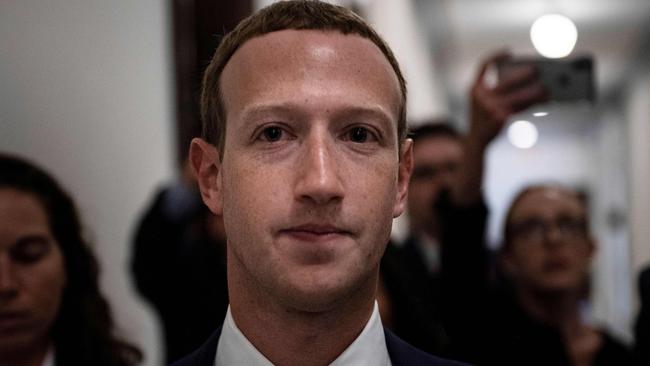Seven changes big tech companies need to make now
If the giants of the tech world ever want to have our trust again, they’re going to have to acknowledge their many mistakes and prioritise ushering in a new era, writes Jennifer Dudley-Nicholson.
Tech giants remind me of Santa.
They’re not generous or jolly but they do know when I’m sleeping, when I’m awake, when I’ve searched for a gift outside my price range, when I’ve visited a store that sells it, and to deliver me constant reminders of it until I relent.
Big tech also knows how I vote, the issues on which I vote, how to change my vote, what medical conditions I suffer, how much insurance I have, the names of my friends, family and colleagues, where I work, live and travel, my gender, how many cats I serve, and whether they’re planning an uprising this year (probably).
In fact, given all the information they’ve harvested from me, it’s a bit sad Facebook, Google, Twitter and friends didn’t deliver a targeted gift on December 25 or a cut of all the money they’ve made from selling my information to online marketers.
MORE FROM JENNIFER DUDLEY NICHOLSON: How social media platforms are failing us
But Christmas has passed and it’s time these multibillion-dollar tech firms considered 2020.
Given the 2018 techlash and the ever-compounding failures, flubs and fines of 2019, it’s time for them to make some serious New Year’s resolutions for an overdue tech revolution.
Feeling generous and jolly myself, I’ve compiled a list of seven suggestions.
1. Don’t be evil anymore (and start by being upfront)
Google’s ‘don’t be evil’ mantra feels more relevant and overlooked than ever. In 2019 we discovered Facebook paid young users $30 to track everything they did on their smartphones, that it created “shadow profiles” of internet users who didn’t even use its services, and “unintentionally” siphoned the contact books of 1.5 million users. Whoops. Hate it when that happens. And, as if oblivious to outrage, Facebook then revealed plans to put connected cameras in our lounge rooms and launch its own cryptocurrency even though most people wouldn’t trust it with spare change. Here’s my advice: stop and take stock. If it feels creepy, stop doing it, and actually tell users what information you’re exploiting/selling/collecting about them. They’ll appreciate it more than finding out you’ve accidentally hijacked democracy.

2. Stop tracking us when we ask you to stop tracking us
Want a wake-up call? Open ‘location history’ in your map app and marvel at a list of every place you’ve visited going back years. Sadly, asking a tech giant to stop following your physical location may not be enough to shut this creepiness down.
The Australian Competition and Consumer Commission launched court action against Google this year, alleging Aussies turned off ‘location history’ in their Android phones but still felt Google’s breath on their necks unless they also disabled the lesser known ‘web and activity’ setting. The ACCC is asking the court to impose “significant penalties”. And a US government committee this month heard Facebook was following users in the real world even if they turned off location-tracking (it uses IP address information and people they tag to work it out). This digital stalking needs to stop.
MORE FROM JENNIFER DUDLEY NICHOLSON: Another shooter live streams an attack. When will it stop?
3. Act like a publisher (because you are one)
If a magazine publishes information, they’re responsible for it. If a person says something, they’re accountable for that too. But lawyers for big, cashed-up social networks argue there is too much content published on their platform for them to be answerable for it. These companies should be held responsible for harmful, hateful, damaging, and deliberately misleading information on their own web servers, particularly when they don’t provide the means for users to adequately censor or turn off comments on inflammatory issues. And there should be ways to prioritise the swift removal of dangerous content that can lead to harm.
4. For the love of all that is good, shut down terrorist content
Social media bosses regularly say they don’t want to be the arbiters for what is right but terrorist content, whether it’s a live-streamed massacre or a how-to manifesto, should have no internet home. Australia has taken measures — led by its internet service providers — to promptly bin this information, but social media needs to step up and prioritise the identification and removal of abhorrent content. Too many people saw the Christchurch mosque massacre. Tech giants need to learn from that experience.

5. Let elections happen offline
Facebook founder Mark Zuckerberg once dismissed online political interference as “a pretty crazy idea”. His comment has not aged well. It’s now widely accepted that Russia changed the outcome of America’s last presidential election. To stem the damage, Twitter banned political ads from its platform in November. LinkedIn and Pinterest did it last year. Even Google changed political advertising policies to prevent “granular” targeting of voters. Facebook denied action was needed. It’s not enough. People need to have confidence they’re viewing truthful information about issues, candidates and parties online. Internet giants should not profit from deliberately misleading election ads and propaganda engineers should not be allowed to decide another government.
6. Shut down anti-vax rabbit holes
Vaccine-preventable diseases are making a comeback but, according to Aussie anti-vax Facebook groups, that’s a good thing. Despite 81 deaths to measles in Samoa, and outbreaks across Australia this year, they claim the disease is nowhere near as bad as the vaccines that prevent it. This harmful misinformation needs to be shut down, not celebrated and echoed in a chamber that also sells DVDs, T-shirts, and movie tickets. Facebook made promises to end vaccine-trashing groups earlier this year. It didn’t follow through.
7. Save our grammar
A Twitter edit button won’t save lives, but it could help save face. It shouldn’t top the network’s resolutions but, if Twitter insists on letting US President Donald Trump tweet, his stressed minders should be able to clean up his missives for a less covfefe 2020.
Originally published as Seven changes big tech companies need to make now
